What if a single plant could help fight malnutrition, balance blood sugar, support heart health, and even protect against inflammation? Surprisingly, such a plant exists—and it’s been growing quietly for centuries in tropical and subtropical regions. Known as Moringa oleifera, or simply “moringa,” this humble tree is often called the drumstick tree or miracle tree.
Here’s the fascinating part: according to research published in the Journal of Food Science and Human Wellness, moringa leaves contain seven times more vitamin C than oranges, four times more calcium than milk, and three times more potassium than bananas. Despite this extraordinary profile, moringa has remained largely overlooked in mainstream nutrition conversations.
In this article, we’ll uncover the hidden power of moringa and explore how it can support your health naturally. You’ll discover its nutrient breakdown, proven health benefits, practical ways to include it in your diet, and inspiring stories of how communities around the world use moringa to thrive.
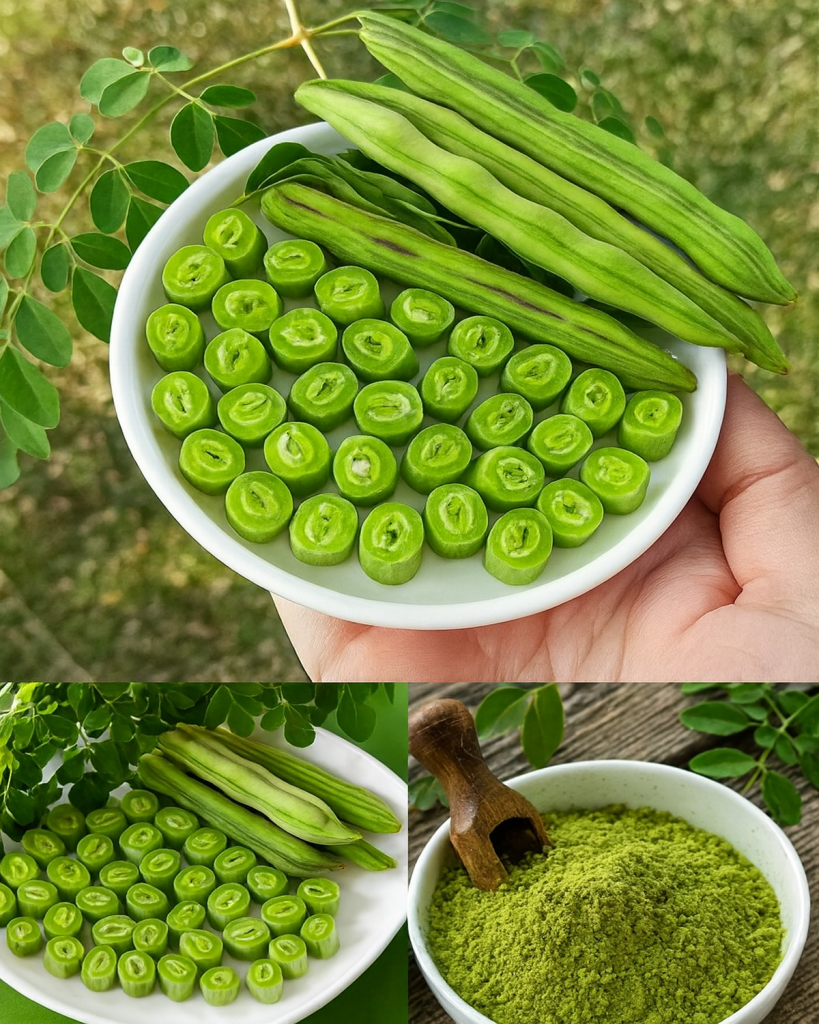
What Makes Moringa a Nutritional Powerhouse?
Every part of the moringa tree—leaves, pods, seeds, and even roots—offers valuable nutrients. However, the leaves are the most commonly used because they can be dried, powdered, or eaten fresh.
Nutritional highlights per 100 grams of fresh moringa leaves:
- Vitamin A: 6780 mcg (supports vision and immunity)
- Vitamin C: 220 mg (powerful antioxidant)
- Calcium: 440 mg (essential for bones and muscles)
- Protein: 9.4 g (unusual for leafy greens)
- Potassium: 259 mg (supports heart health)
- Iron: 4 mg (important for blood production)
Unlike many superfoods, moringa grows easily in arid soil, making it an affordable solution in regions struggling with malnutrition.
1. Moringa and Energy Balance
Many people today struggle with fatigue caused by nutrient-poor diets. Moringa’s unique combination of iron, magnesium, and B vitamins supports energy production at the cellular level.

How it helps:
- Iron helps transport oxygen to cells.
- Magnesium supports muscle function and energy release.
- B vitamins assist in converting food into fuel.
Real-life example: A busy mother of two replaced her afternoon coffee with moringa tea. Within weeks, she reported feeling more energized without caffeine crashes.
Tip: Add one teaspoon of moringa powder to smoothies or soups for a natural energy boost.
2. Moringa for Blood Sugar and Heart Health
Research shows that moringa may help reduce blood sugar spikes after meals. Its bioactive compounds, including isothiocyanates and chlorogenic acid, improve insulin sensitivity.
Heart health benefits:
- Potassium lowers blood pressure by balancing sodium.
- Antioxidants like quercetin reduce inflammation in arteries.
- Fiber helps lower LDL cholesterol.

Case study: In a small clinical trial, participants who consumed moringa leaf powder daily saw modest improvements in fasting blood sugar and cholesterol after 12 weeks.
Tip: Sprinkle moringa powder over roasted vegetables or stir into salad dressings to add cardiovascular support to your meals.
3. Anti-Inflammatory and Antioxidant Benefits
Chronic inflammation is linked to conditions like arthritis, obesity, and heart disease. Moringa’s compounds—quercetin, kaempferol, and chlorogenic acid—have strong anti-inflammatory effects.
How it works:
- Neutralizes free radicals that damage cells.
- Reduces markers of inflammation in the body.
- Protects against oxidative stress that accelerates aging.
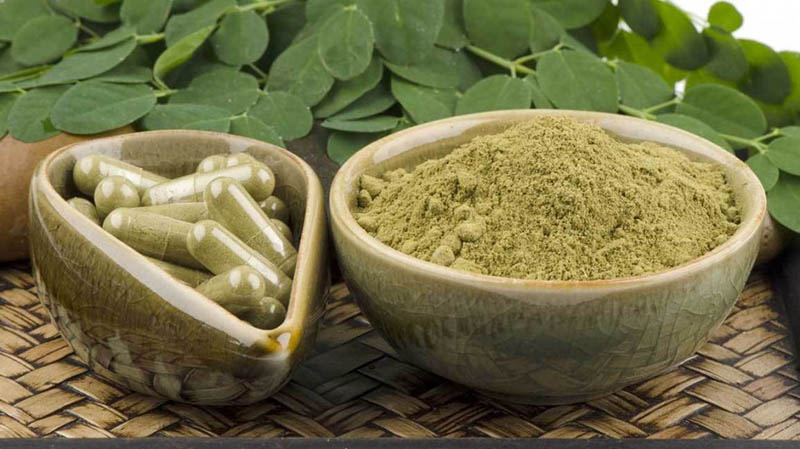
Example: Communities in India and Africa traditionally use moringa paste on swollen joints and inflamed skin, showing how its anti-inflammatory power goes beyond internal health.
Tip: Brew moringa tea daily to help your body combat everyday oxidative stress.
4. Moringa for Skin, Hair, and Immunity
Your beauty routine may benefit from this unpretentious tree as much as your health.
Skin and hair benefits:
- Vitamin C stimulates collagen, keeping skin youthful.
- Vitamin E and antioxidants reduce wrinkles and protect from sun damage.
- Protein and amino acids strengthen hair.
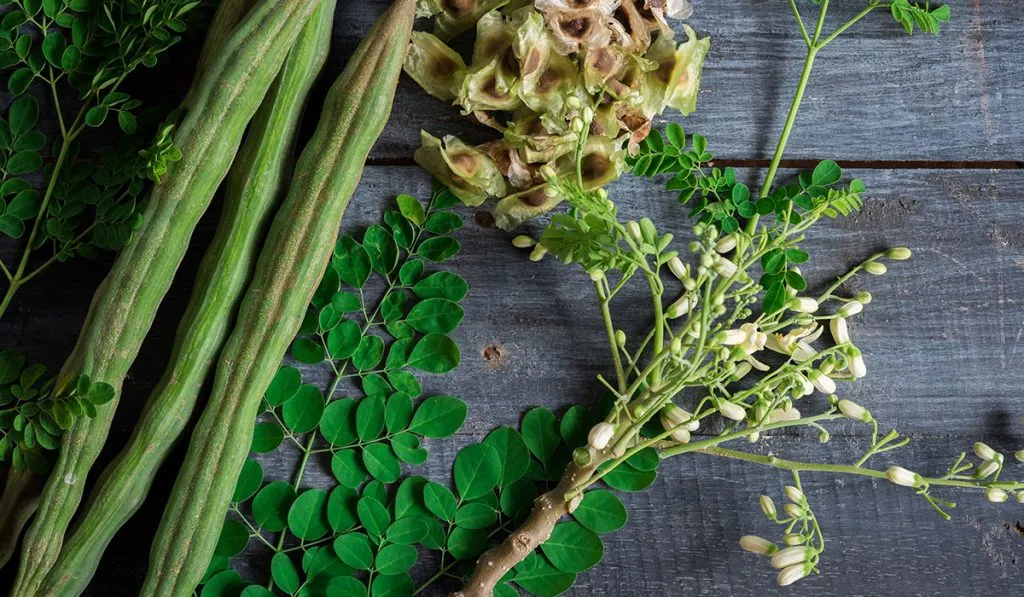
Immunity support:
- High vitamin A and C content enhance immune defenses.
- Zinc supports healing and infection resistance.
Tip: Mix moringa oil with a carrier oil for a natural moisturizer, or use moringa powder in homemade face masks.
5. Moringa and Digestive Wellness
Digestive health is often overlooked in discussions about superfoods. Moringa shines here, too.
Benefits for digestion:
- Fiber supports gut motility and nourishes healthy bacteria.
- Antimicrobial properties protect against harmful bacteria.
- Gentle detox effect from chlorophyll-rich leaves.
Example: In rural communities, moringa soup is a common remedy for digestive discomfort, helping people feel lighter and more energized after meals.
Tip: Pair moringa leaves with fermented foods like yogurt or kimchi to maximize gut-friendly benefits.
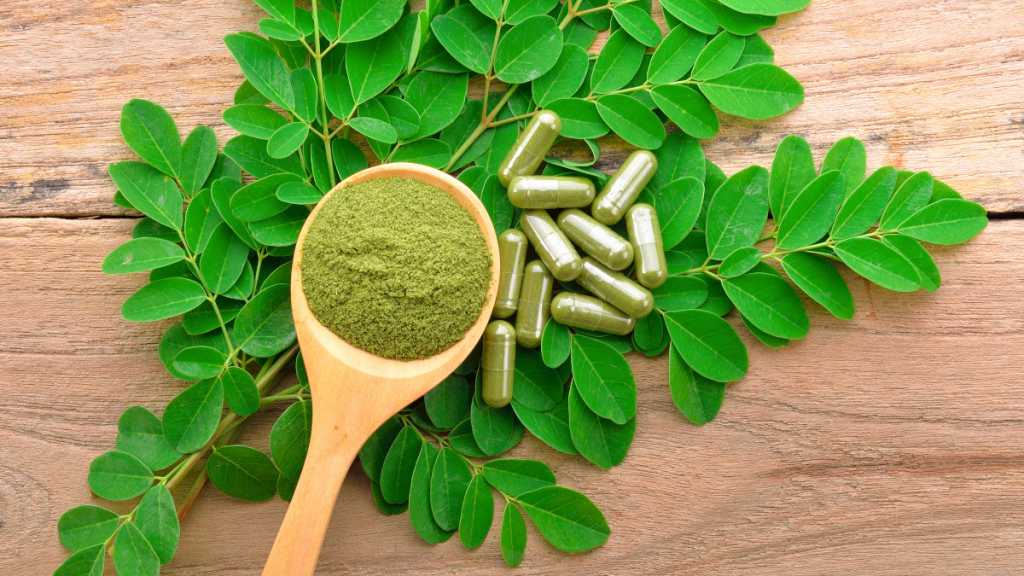
Quick Reference Table of Moringa Benefits
| Health Area | Key Nutrients/Compounds | Practical Use |
|---|---|---|
| Energy & vitality | Iron, magnesium, B vitamins | Add powder to smoothies |
| Blood sugar & heart | Chlorogenic acid, potassium, fiber | Sprinkle on veggies or salads |
| Inflammation relief | Quercetin, kaempferol, antioxidants | Brew moringa tea |
| Skin & hair health | Vitamin C, protein, vitamin E | Use moringa oil or face mask |
| Immunity support | Vitamin A, vitamin C, zinc | Drink moringa tea during flu season |
| Digestive wellness | Fiber, chlorophyll, antimicrobials | Cook moringa leaves in soups |
How to Safely Add Moringa to Your Diet
Like any powerful natural remedy, moderation is key. Too much moringa may cause digestive discomfort.
Dosage guide:
- Powder: 1–2 teaspoons daily for adults.
- Tea: 1–2 cups daily.
- Capsules: Follow product instructions.
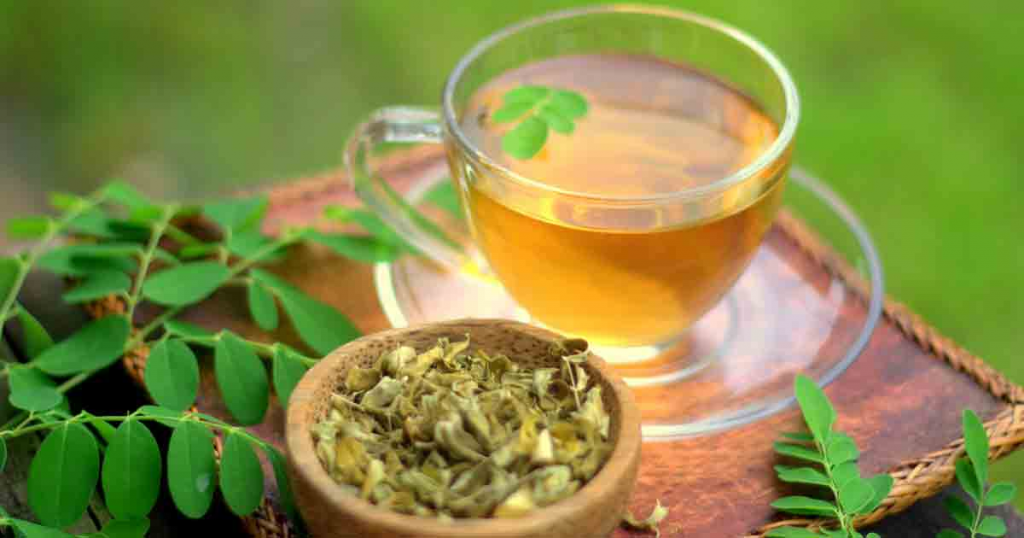
Safety notes:
- Pregnant or breastfeeding women should consult a doctor before use.
- Always buy moringa from trusted sources to avoid contamination.
Conclusion
Moringa is truly an unpretentious wonder of nature. From fighting inflammation and balancing blood sugar to nourishing skin, hair, and immunity, it deserves a place in modern kitchens around the world. The beauty of moringa lies not in hype but in its proven, practical benefits across generations and cultures.
FAQs (Quick Takeaways):
- Can moringa replace medication? No, it can support health but should not replace prescribed treatments.
- What’s the best way to take it? Powder in smoothies or soups, brewed as tea, or used as oil.
- Is moringa safe for daily use? Yes, in moderate amounts it’s generally safe for most adults.
This article is for informational purposes only and is not a substitute for professional medical or dietary advice. Always consult with a qualified healthcare provider before making significant changes to your diet or supplement routine.




